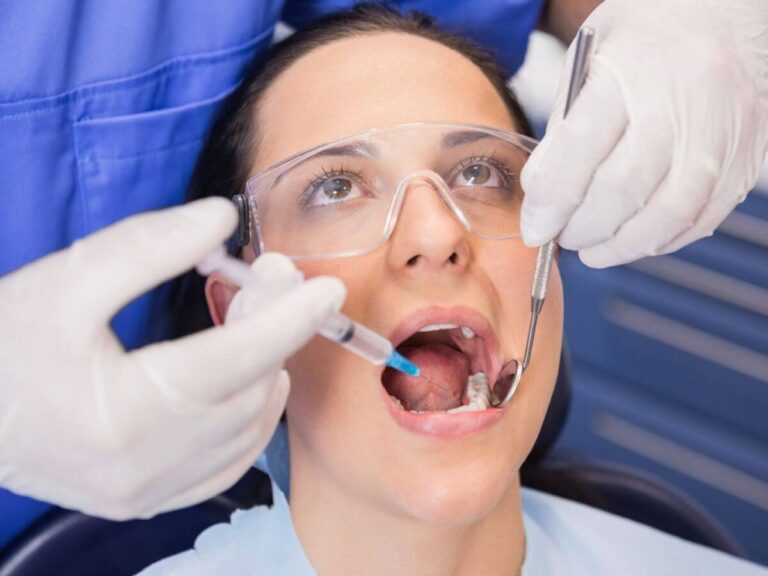Diabetes is a chronic condition that affects many people worldwide. It can have serious implications on oral health, as it can increase the risk of gum disease, tooth decay and other related problems. People with diabetes need to be extra vigilant when it comes to their oral hygiene and routine dental visits, as they are more prone to developing dental issues.
It is important for people with diabetes to understand the link between their condition and oral health, so that they can take the necessary steps to prevent any potential problems from occurring. Regular visits to the dentist, brushing twice daily and flossing regularly are all essential for keeping your teeth healthy if you have diabetes.
Most Common Oral Problems Associated with Diabetics
- People with diabetes are at an increased risk of developing periodontal gum disease, which is one of the most common oral health problems affecting people with diabetes. This type of gum disease occurs when bacteria and plaque buildup on teeth and gums, leading to inflammation and infection. The symptoms of periodontal gum disease can include swollen or bleeding gums, bad breath, receding gums, and loose teeth. It is important for people with diabetes to take extra care of their oral hygiene to reduce the risk of developing this condition.
- Gum abscesses are caused by bacteria in the mouth and can lead to serious complications if not treated properly. People with diabetes are more prone to developing gum abscesses, as their weakened immune systems make them more vulnerable to bacterial infections. Additionally, poor blood sugar control can also increase the risk of developing gum abscesses. It is therefore important for people with diabetes to maintain good oral hygiene and regularly visit their dentist for check-ups to reduce the risk of developing gum abscesses.
- Tooth decay is one of the more common oral health issues associated with diabetes and can lead to further complications if not treated properly. People with diabetes are more prone to tooth decay due to an increased risk of dry mouth and gum disease, both of which make it easier for bacteria to damage teeth. In addition, high levels of sugar in the saliva caused by diabetes can also contribute to tooth decay. It’s important for people with diabetes to take measures such as brushing twice daily and flossing regularly to prevent or reduce their risk of developing tooth decay.
- People with diabetes are more prone to developing fungal infections in their mouths due to their weakened immune systems and high blood sugar levels. These fungal infections can cause a variety of symptoms, such as redness, soreness, and irritation in the mouth. If left untreated, these infections can lead to further complications like tooth decay and gum disease. It is important for people with diabetes to be aware of the risks associated with oral health problems so that they can take steps to prevent them from occurring or worsening.
- Lichen planus is a chronic inflammatory condition that affects the mucous membranes in the mouth and can cause pain, burning sensation and ulceration. It can also lead to difficulty in eating, drinking, and speaking. It is important for people with diabetes to be aware of this condition and to seek prompt medical attention if they experience any symptoms. Early diagnosis and treatment can help prevent further complications from developing.
- People with diabetes are more likely to suffer from mouth ulcers, which can be painful and difficult to treat. These sores are caused by high levels of glucose in the saliva, leading to an increase in bacteria and inflammation. They can also be caused by poor oral hygiene or dry mouth. Mouth ulcers can cause significant pain and discomfort, so it is important to seek out a dentist for treatment.
- One of the more common oral health problems associated with diabetes is low saliva levels. This can lead to dry mouth and a burning mouth, which in turn increases the risk of cavities, gum disease, and other infections. Low saliva levels can also make it difficult for diabetics to maintain good oral hygiene and keep their teeth clean. It is important for diabetics to monitor their saliva levels closely and seek dental care if they notice any changes in their mouth or teeth. It is important for those with diabetes to take steps to protect their oral health by keeping their blood sugar levels under control and regularly visiting a dentist for check-ups.
Visit your dentist every 6 to 12 months so that they can check your mouth, teeth, gums, and professionally clean your teeth and give advice about caring for your teeth and gums at home. Talk to your dentist about your blood glucose levels and what medications you are taking.
Sun City Dental
11240 Montwood Dr Ste J
El Paso, TX 79936
915-201-2539

Sun City Dental
8611 N. Loop Dr.
El Paso, TX 79907
915-859-2690
Disclaimer: Every effort has been made to ensure the accuracy of this article and other articles on this website at the time it was written. The information contained in this blog post is not intended to be a substitute for proper dental care as recommend by your trained dentist. We are not responsible for any of the results you experience while applying the information contained on the smilesuncitydental.com website. It is our sincere desire to continue to provide quality information as it relates to dental matters covered in this website and it is our aim to provide accurate information as it relates to your dental care.


